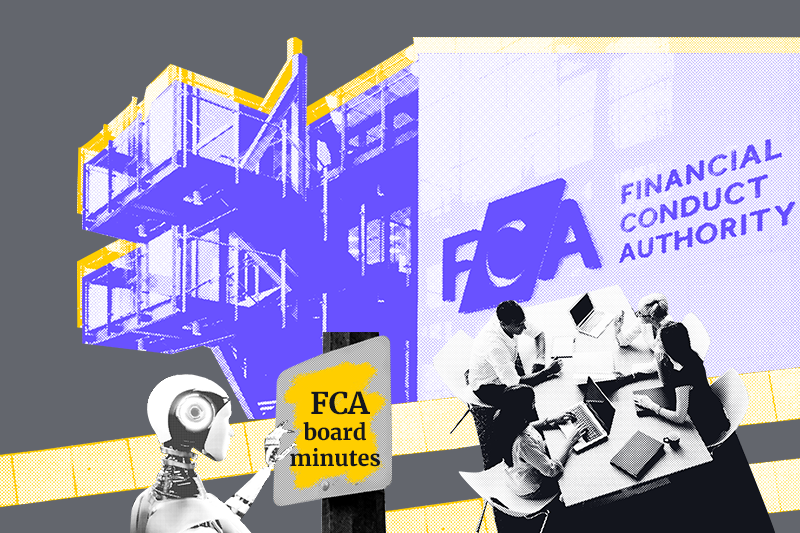Historically, the FSA/FCA hasn’t held a Board meeting in August, though Ashley Alder might have changed this, and consequently the June and July meetings have often had quite heavy agendas. In fact, one of the legitimate early criticisms of the FSA was of its tendency to issue major consultation papers at the start of the summer, obliging long-suffering respondents to wade through them in the dog days of August.
With this in mind, the agendas of this year’s June and July meetings look relatively light, though there’s still much to interest us.
There are several possible reasons for these light agendas, not least preoccupation with the Consumer Duty, FSMA, and the Retained EU Law (REUL) Act, all of which would have taken up considerable policy bandwidth. And the recent arrival of Ashley Alder as Chair may also have contributed to a natural hiatus in the FCA’s strategy timetable.
Some highlights…
June Board minutes
FCA Annual Report
As I posted recently, the sign-off process for this was quite late, and the (new) Chair may well have insisted the agenda was relatively clear to ensure this received proper discussion time. One aspect not apparent until these minutes was the late submission of the NAO Audit Completion report, which only went to the FCA Audit Committee on July 6 (para 8.3). We don’t know the reasons for this timing – hard to imagine it was planned – but it will have been a major/dominant factor in the Annual Report’s late publication.
Board Committees
The relative proliferation of these committees – the Policy & Rules Committee (2.1) is only one of a number, including Performance and People committees – should enable the Board to build a good understanding of what’s actually going on, the lack of which has been a problem in the past.
But there are some dangers to guard against.
As an example, I can think of one or two executives who were aggressively defensive of their pet projects. More Board scrutiny of such initiatives would be a benefit but, especially in the absence of the hard metrics that a “for profit” company would take for granted, inquisitive NEDs may be frustrated in delivering the enhanced scrutiny these committees promise.
Practitioner Panel Survey (12.6ff)
I’m not surprised that the issues listed here – from what seems like low satisfaction with supervisors to survey questions not lending themselves to a subsequent “action” – were equally relevant in early Panel surveys of 20 years ago, an indication of how intractable they have proved.
However, the Board discussion misses some of the causes of these problems. Proper training to actually “be” a good supervisor has typically been poor/non-existent, other than for a brief period after the 2007/08 financial crisis. The survey, meanwhile, has never really been designed as a catalyst for action, with the Panel preferring a broad, impressionistic sweep of questions. And the FCA also often prefers it this way as, if the survey contained more direct links to potential FCA actions, it could quickly tip into regulatory capture.
July Board minutes
Perimeter issues
The description of the annual discussion on this with the Economic Secretary (4.1E) doesn’t exactly imbue you with confidence. Perimeter issues have caused more harm over the years than several regulated sectors and that “there was no substantive discussion” of the points the FCA raised doesn’t suggest that the preparation was adequate. Hopefully, the Treasury Select Committee will dig into this.
Approach to Artificial Intelligence (AI)
The minute (5) suggests that the Board discussion on AI was long and possibly meandering, with the record making a valiant effort to give it shape and direction. AI is a difficult challenge for any regulator and the FCA, at some stage, probably quite soon, will need to decide (i) how large a centre of expertise it wants to build; (ii) how to recruit for this, including how to pay for it; (iii) how wide the remit of any new division will be. At the moment, it feels like it’s just in the foothills of these debates.
Board Committees (Part 2)
I suggested above that better Board scrutiny at the FCA would be a positive, but that there are dangers in the committee approach. Another of these, that occurs reading this minute (8.8), is not securing a sufficient level of engagement from the Executive. There have been instances in the past where some ExCo members have deprioritised such meetings, and it will be important this isn’t repeated.
The views expressed are the author’s own.
Gavin Stewart is an independent commentator on financial regulation; former regulator; novelist; ex-international rower and sports administrator. He has 27 years’ experience working for financial services’ regulators (Bank of England, FSA & FCA), holding a wide variety of roles including as a Bank of England Supervisor, FSA Head of Strategy, Planning & Performance, and FCA Chief Risk Officer.

















